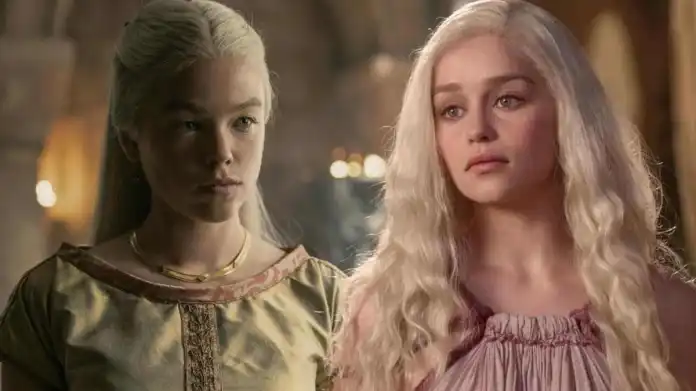When we first learn to lie, what a complicated web we create. House of the Dragon jumped right into the unpleasant old Game of Thrones-style lying and planning, bringing to the broad realization that, as usual, very few people can be trusted. More significantly, those in authority keep making bad choices.
The most recent episode of House of the Dragon was an improvement over the debut in some respects since it seemed to build more of the foundation for the plot that will follow. There was also much more mystery, though I’m still not entirely sold by Matt Smith’s Daemon. Despite being positioned as the seething adversary, he doesn’t seem to have much control over a scene, save than a few piercing looks and comments. Perhaps it’s still too early, but we would expect a bit more from someone who has already exposed himself as deceitful.
The majority of the supporting characters in the program look gormless and stodgy, which is one of its much more severe issues. In the second episode, there are already clues about Rhaenyra’s developing relationship, which you know will end badly. There are also hints of a conspiracy, fiery dragons, and several grisly fatalities at the opening and close of the episode. What new content does House of the Dragon provide, though, is that classic Game of Thrones?
The program has descended to some fairly dark and murky depths, and they’re not sparing any prisoners, to portray the “realistic situations of women and children” throughout the medieval centuries (a handy defense). But the primary issue with the show up to this point is that it seems to be reveling in presenting repugnant sexism rather than doing something substantial and good, like tearing down such institutions. Thus, to produce the unsettling picture of a soap opera, we must continuously witness males being intolerable while women exist only to suffer.
For instance, the widowed king is being courted by Alicent Hightower (Emily Carey), a close friend of Rhaenyra. Her father’s insistence has forced her to do it instead of her own free will. Except for her conversations with the king and Rhaenyra, which are intended to have significance but which I am having trouble understanding, there hasn’t been any investigation into her character to yet. The episode ends with Viserys I making an even more unsettling decision that Rhaenyra won’t approve of after he has been shaken by a distressing proposal of marriage involving a small kid.
The performance presents two stereotypical images of women to the audience: the fiery Rhaeynra and the icy-cold Rhaenys, also known as “The Queen Who Never Was,” a lady who has accepted the harsh destinies of thrones and would simply plan for power, even if it means selling off her daughter. She emits the little ripples of terror that the program urgently wants to create with her iciness and phony innocent smiles. Her performance has a strong impact, yet it is insufficient to hide the show’s obvious flaws.
But the core is the same. The women’s narratives merely appear rigid and formulaic; they are either there to encourage men to fight or to put an end to war. Again, it’s a blatant example of men designing roles for women. All other people behave like chess pieces. Will the third episode’s structural adjustments, strong character development, and annoying plots be improved? Your hunch is just as valid as mine.
